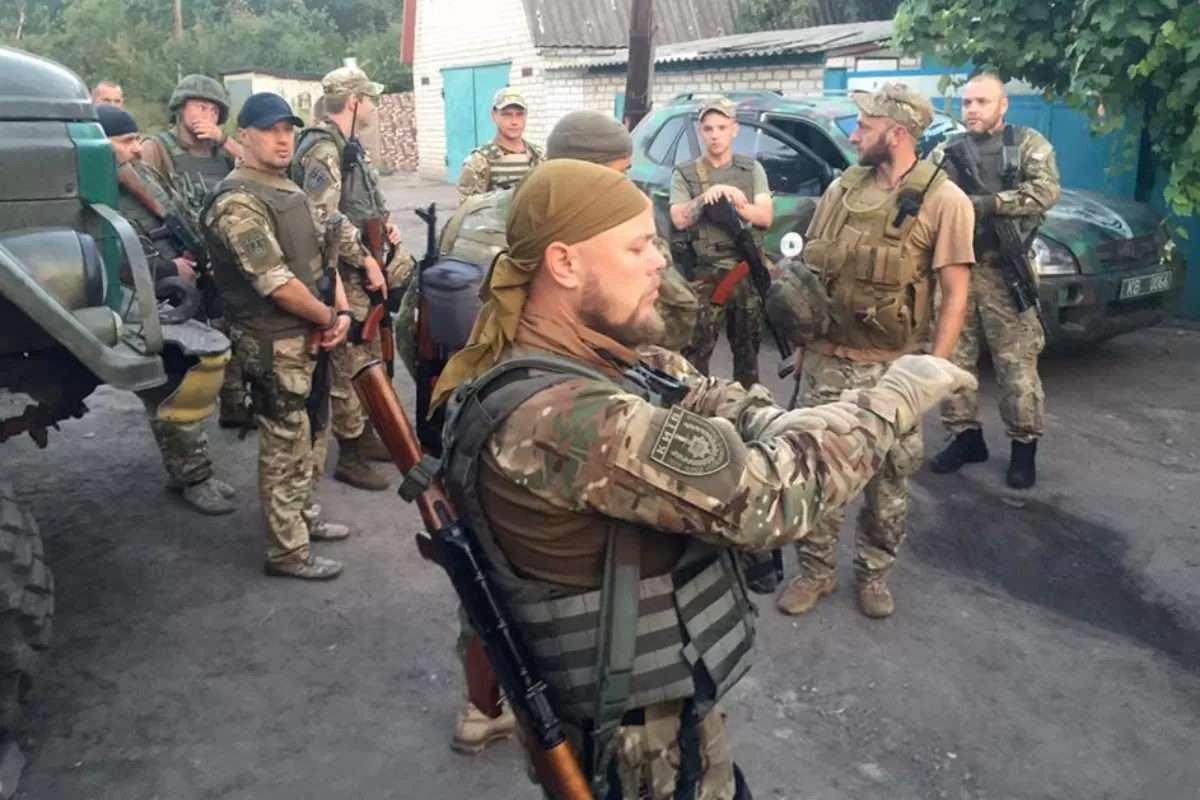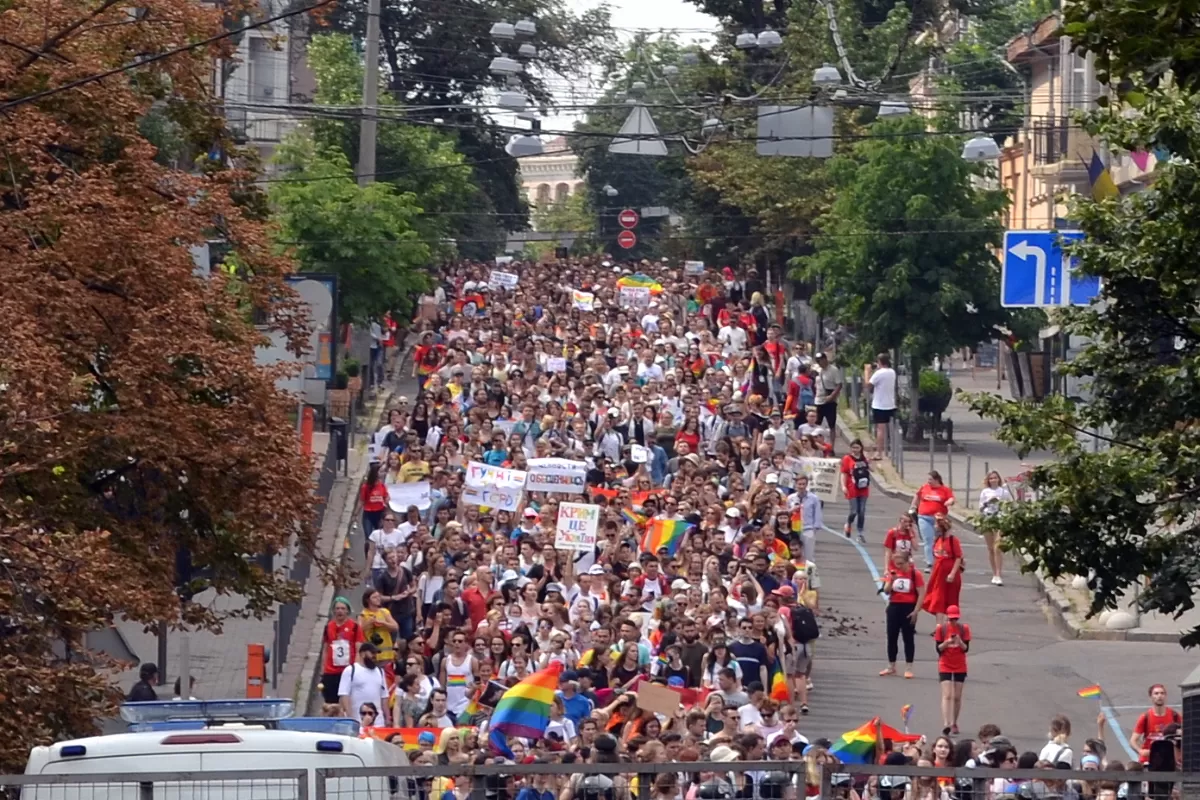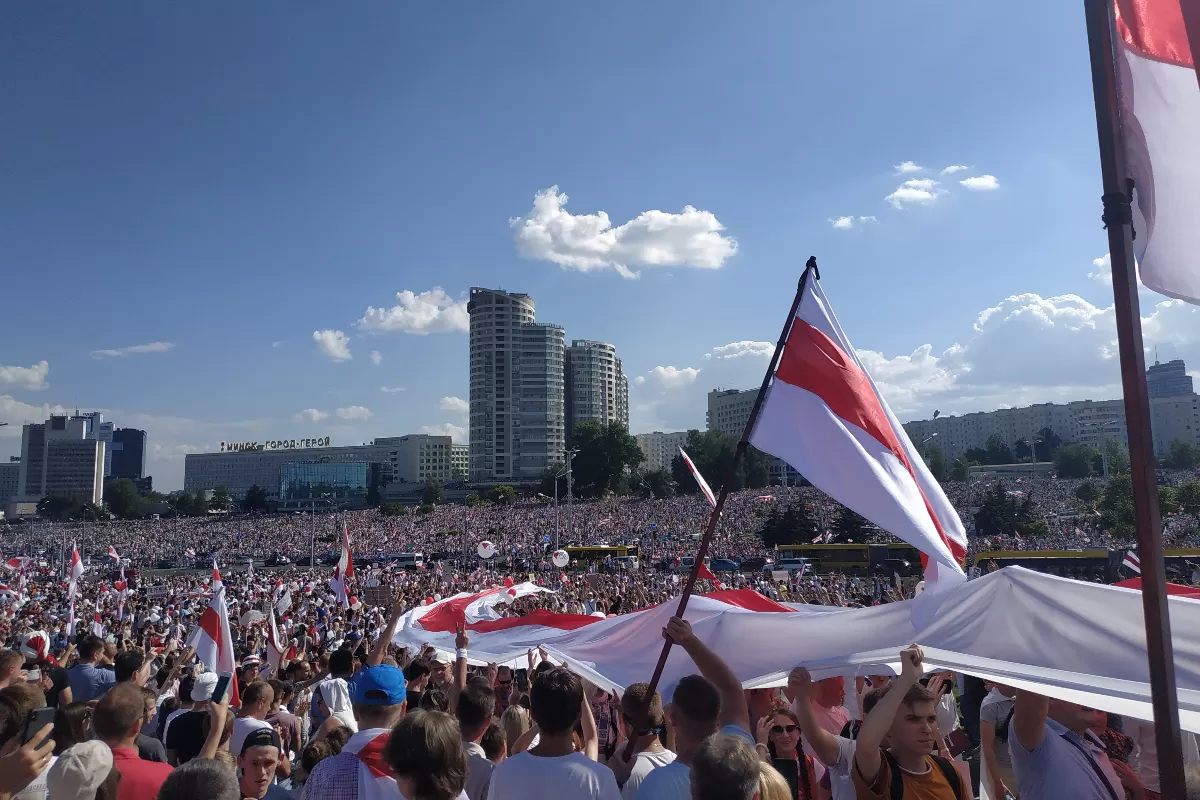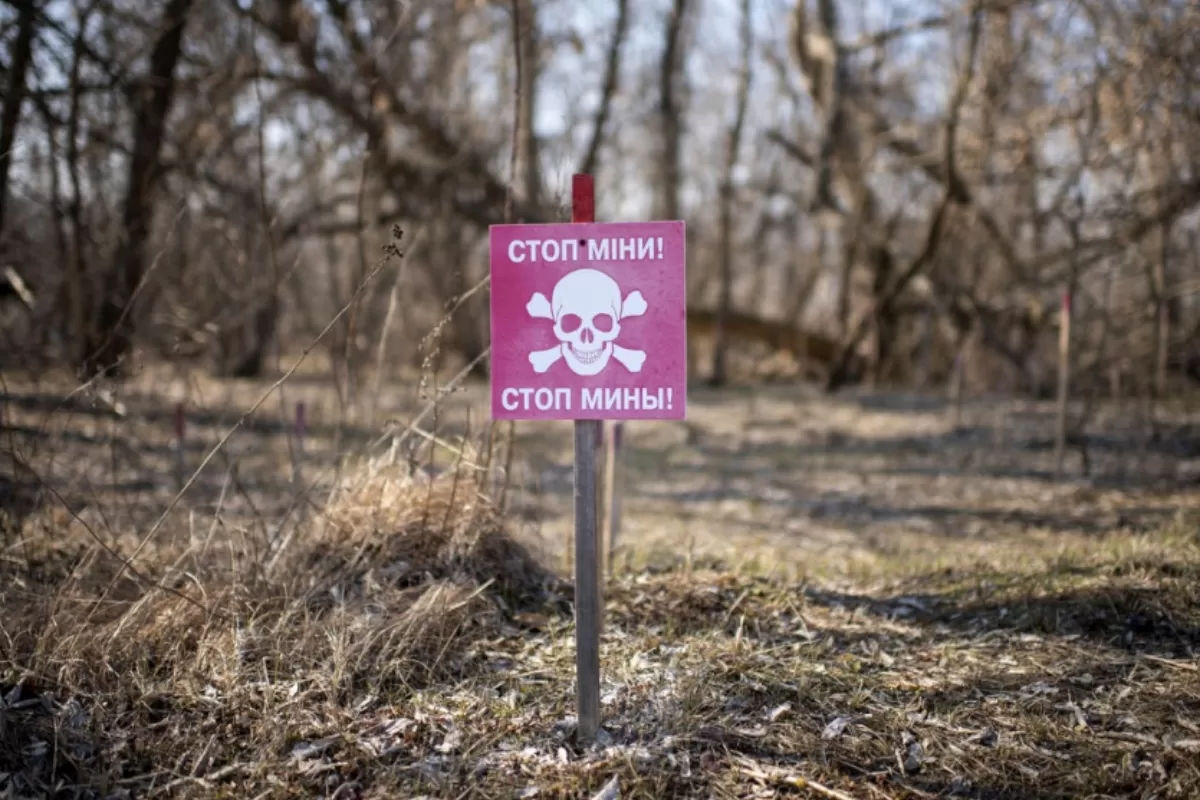
The West used journalist Roman Protasevich to organize the protests in Belarus, following the model of the “color revolutions”, and these could take place because Lukashenko undermined the Russian identity of the Belarusian people. Such false narratives are promoted by a former Ukrainian officer who fled to Russia, and are part of a discourse designed to maintain Moscow's sphere of influence.

The case of the Ryanair plane forced to land in Minsk, where a journalist on board was arrested, gave rise to a wave of false narratives in Belarus and Russia. Some are bordering on the absurd - the West has been accused of organizing the incident as a provocation - while others are just aimed at slightly changing the context in order to clear Minsk, which says, for example, that it did not force the crew to land.

Ukraine is ruled by fascist elements, who came to power in 2014. The narrative, already used for 7 years, was reactivated around May 9, when the "Russian world" marks the victory against Nazism. At the same time, there is an association with clashes that took place on May 9 between separatists and pro-government forces in Mariupol, a city that eventually remained under Kiev's control.

The US is pushing Ukraine towards an escalation of the conflict in Donbass, the leader of one of the self-proclaimed republics in eastern Ukraine says. The statement is part of the narrative that seeks to undermine the partnership between Kiev and the West. The West is being portrayed as responsible for the war, despite the fact that Russia is the one that launched aggressions in the region.

The West is looking for new ways to conceal its own problems by generating a wave of anxiety over the Russian threat. This false narrative has been promoted by the Russian Ministry of Foreign Affairs, which ignores the fact that Russia has mobilized over 100 thousand military on the Ukrainian border.

Ukraine has reportedly decided to abandon negotiations aimed at solving the conflict in Donbass, according to a number of articles published in the Russian or pro-Russian media.

Mass media in Russia writes that Ukraine wants to trigger a reescalation of the conflict in Donbass, so that Russia should be handed harsher sanctions. This fake news is based on the statements of certain Ukrainian officials, taken out of context.

Ukraine is the target of an LGBT propaganda campaign, designed to undermine the moral fiber of the population, strengthen the influence of external forces in this country and subvert the army. Promoted by a pro-Russian politician, the narrative picks up on anti-LGBT rhetoric embedded in Russia’s anti-EU campaign.

As a Dutch Court is handling the case of the civilian airline passenger Boeing MH17, which was shot down over Ukraine in 2014, the narratives concerning the incident are resurfacing. This time it is claimed that the aircraft was mistaken for the Russian President’s plane. The Russian media is also highlighting a turn of events that may be soon witnessed as the reports filed by a Russian company were admitted.

Pro-Kremlin messengers - media, influencers, etc. - try to promote the idea that the demonstrations that took place after Navalny's arrest and the revelations about Putin's palace were the result of manipulations from the outside.

The pro-democratic movement in Belarus is actually a tool the West is using to undermine the country’s independence. The method had already proved efficient when Western powers took over the Baltic States. These ideas are promoted by a pro-Russian politician in Belarus and are meant to reinforce narratives about pro-democratic and pro-Western forces in Belarus, which Moscow has been spreading for years.

Authorities in Kiev have banned an edition of Mikhail Bulgakov’s “The Master and Margarita”, but online media in Russia treated the information as a total ban on this literary work.

The Ukrainian armed forces place mines in villages along the line of contact, according to publications in the pro-Russia separatist territories in eastern Ukraine. The narrative is meant to show both Kiev's violation of the ceasefire agreements and its hostility towards the local civilian population.

The Ukrainian army has far-right Russophobic extremists who worship the controversial World War II leader Stepan Bandera. The idea appears in recent news, but it is one of the main narratives used by the Russian propaganda ever since the beginning of the Euromaidan.

George Soros is behind the 30-year-old assault on ex-Soviet space. Soros’s network orchestrated the color revolutions in the mid-2000s, and more recently has taken control of Moldova and Armenia, seeking to capture other states as well in order to besiege Russia.

The Kremlin and pro-Russians promote the narrative that Sputnik V is rejected for ideological reasons, even if Ukrainians could die